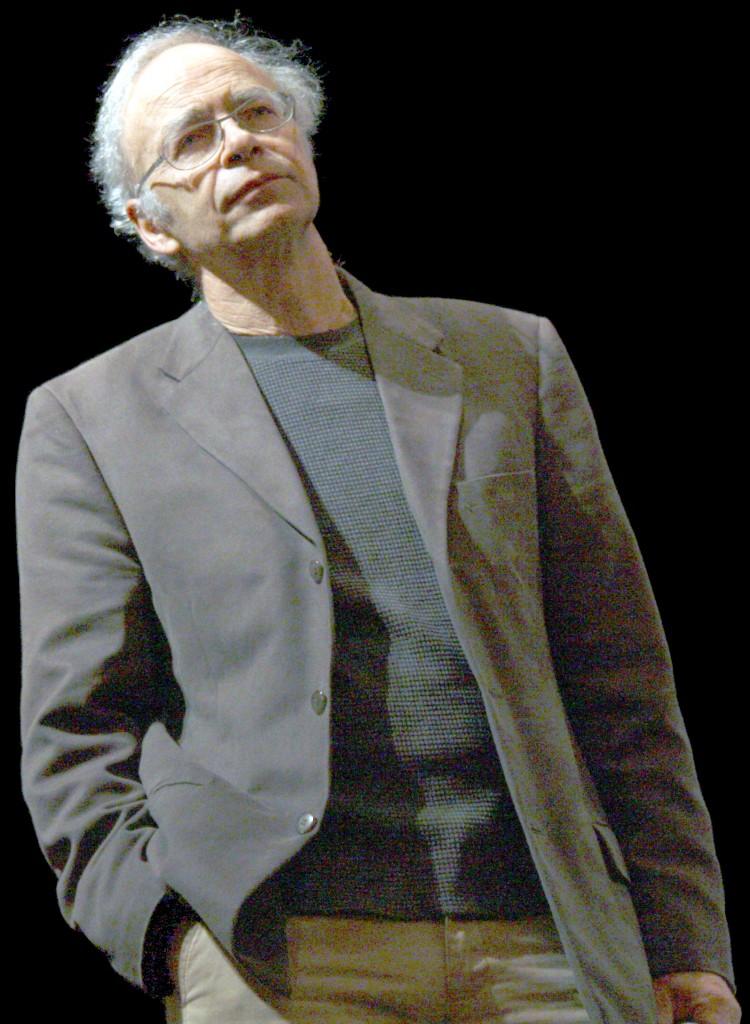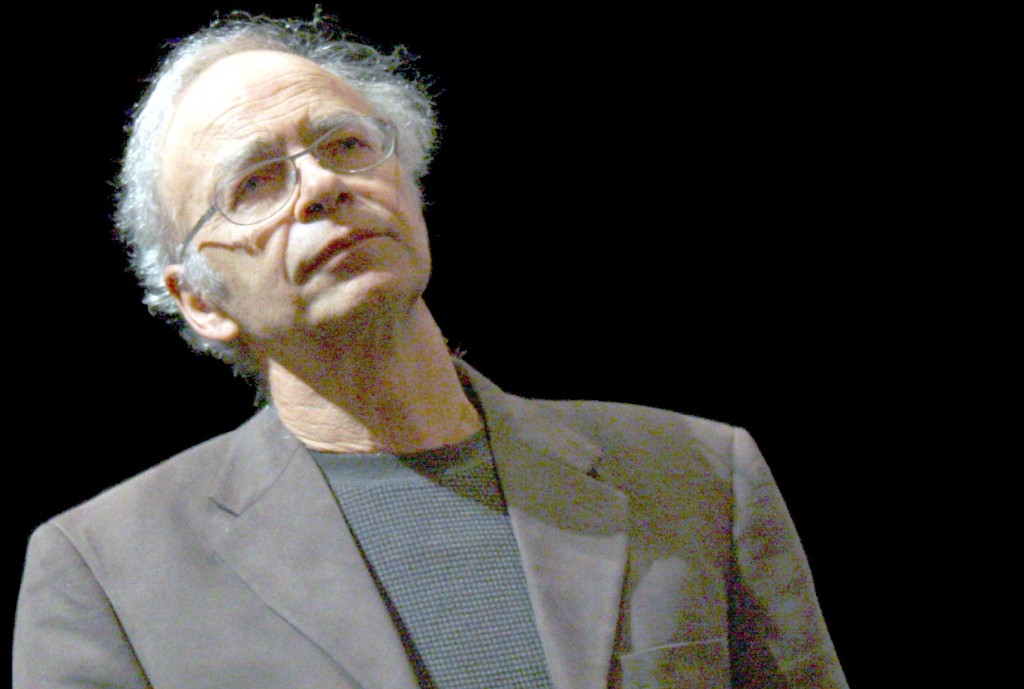“Christians and Other Animals” Hosts Peter Singer, Panelists
November 16, 2012
“Christians and Other Animals: Moving the Conversation Forward,” a panel aimed at revealing the relationship of Christianity with non-human animals, brought Peter Singer, world-renown philosopher, and other experts to Fordham College at Lincoln Center (FCLC) on Nov. 16.

“I’m afraid that those of you who registered for ‘the Peter Singer event,’ are bound to be disappointed by how much theology we cover,” Charles Camosy, assistant professor of Christian ethics, said in his introduction to the discussion.
Singer, an Australian moral philosopher and one of the world’s most prominent experts on animal ethics, is often regarded as one of the pioneers of the animal ethics movement with his book “Animal Liberation,” published in the 1970s.
In addition to Singer, the Ira W. DeCamp Professor of Bioethics at Princeton University, the panel also included David Clough, professor of theological ethics and department chair at University of Chester; R.R. Reno, professor of theological ethics at Creighton University; and Eric Meyer, a Fordham doctoral candidate in theology.
The discussion began with opening statements from each guest. Singer, while not a theologian like the rest, outlined his essential philosophical argument from “Animal Liberation.”
“I don’t claim to be an expert in theology as it regards to animals,” Singer said. “I was personally challenged as to why I was justified in eating meat. Why was I ethically justified in taking part of a practice that technically does treat non-human animals essentially as things. Things we can breed. Things we can then confine and then handle in all sorts of ways in all sorts of ways to maximize the ease with which we turn them into food products.”
Singer continued to explain traditional approaches to relationships between humans and non-human animals, namely that humans are superior because of their capacity for complex reason and morality.
“The more I thought about this, it seemed to me that this simply was a prejudice or a pattern of thought that we had developed in our own interest,” Singer said. “Something called speciesism was at work here.” Speciesism, according to Singer in “Animal Liberation,” is a “prejudice or attitude of bias toward the interest of members of one’s own species and against those members of other species,” a rationalization of our superiority that, for Singer, is on par with the rationalization for racism or sexism.
“Where animals have interest that are similar to ours, there is no reason to discount those interests or give them less weight than we would similar human interests,” Singer said. “So, if animals can feel pain, then that pain matters just as if you had a small child who was not yet rational or self-aware and was in pain. You would think that was a bad thing and prevent that child from remaining in pain.”
“Just because a being is not a member of our species does not justify giving less weight to the pain of that non-human animal. And that is the fundamental principle, the principle of equal consideration of interests,” Singer concluded.
After opening statements, the guests were allowed to explore their own thoughts and address each other about their opening statements. Questions from the audience were asked to spark more debate.
In addition to offering Christian perspectives towards the treatment of animals, the panel also discussed the ethics of medical testing on animal and biological engineering of livestock. The discussion also focused on vegetarianism and veganism.
The event was co-sponsored by the Department of Theology, the Center for Religion and Culture, the Office of the Provost, the Dean of Fordham College at Rose Hill and the Dean of Fordham University Faculty.













Tom Dalzell • Jul 9, 2015 at 11:05 pm
Alissa,
It’s far worse than that. Fordham did not invite Peter Singer so they could debate against him. Fordham invited
Singer because they AGREE with him.
The Jesuits are not Catholics anyone. Its just that simple.
Gerry Heintz • Nov 26, 2012 at 5:16 pm
Where is Fr. McShane on this issue? I wonder if he questioned the intelligence and character of the Jesuits that invited him. I’m disgusted.
Alissa Wolbach • Nov 17, 2012 at 11:54 pm
I am appalled a Catholic institution provided a platform for this evil person. You gave him credibility just by inviting him! Why do you feel the need to debate evil? As Catholic’s we are to stand up to evil and squash it, NOT have a cozy dialog WITH it. I could care less if he has published a million articles. Our Catholic faith should be standing firm against this evil.
Catholics will think twice before sending their children to a Jesuit university. Fordham will not even be an option. I am disheartened a leader of our church, your president, allowed this evil anywhere near your campus. Poor, poor judgment.